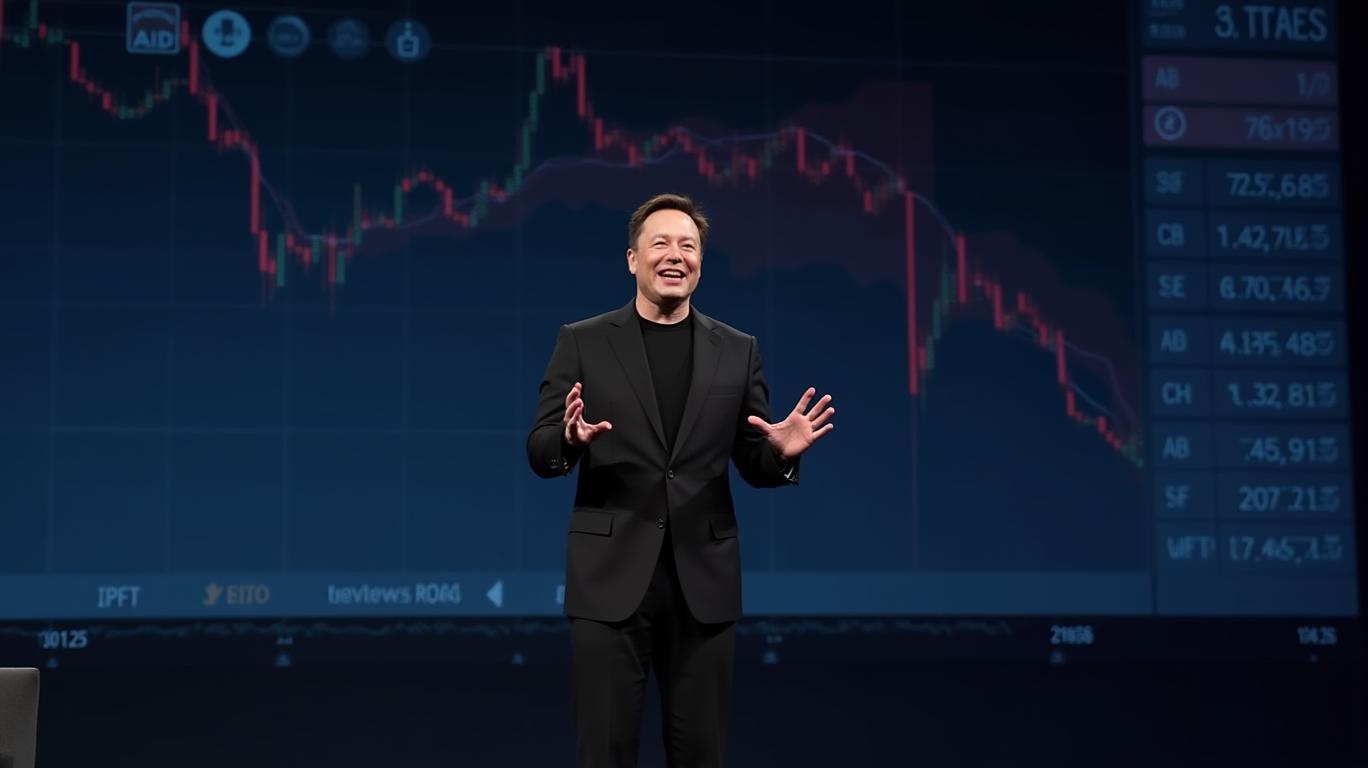Tesla's Stock Dips Amid Ambitious AI and Robotics Push
Tesla has recently captured attention with a series of developments, reflecting the company's dynamic growth trajectory amidst various challenges. Cathie Wood, a notable investor, has reiterated her robust optimism regarding Tesla's future, particularly emphasizing the significance of the autonomous taxi business, predicted to contribute significantly to Tesla's valuation within five years. Despite fierce competition from electric vehicle manufacturers like BYDBYD--, TeslaTSLA-- remains highly competitive, showcasing its strategic moves in expanding its product offerings.
The company took notable steps regarding its FSD driving package, which has been renamed as the "Intelligent Assistant Driving Feature," retaining its price point at 64,000 yuan. This change marks a shift from the previous translation of "Full Self-Driving Capability" to a more localized expression. Tesla has been working meticulously on the approval of intelligent driving software that corresponds with various hardware specifications, namely the 3.0 and 4.0 versions, in response to regulatory notifications aimed at bolstering intelligent connected car standards.
On the technological front, Tesla announced the gradual rollout of software updates for Chinese customers, enabling certain features like City NOA (Navigation on Autopilot), which allows for traffic light recognition and autonomous lane changes. While these functions represent a step toward realizing FSD capabilities akin to those in the U.S., they still necessitate oversight by the driver, embodying an L2 autonomy level.
Elon Musk, Tesla's CEO, recently convened an all-hands meeting, an atypical event shared openly via X platforms. Musk set ambitious targets, including benchmarking a production of 5,000 units of its humanoid robot, Optimus, this year. This robot, built on AI technology, signifies a pivotal advancement in Tesla's vision of a sustainable economy that includes clean energy, autonomous driving, humanoid robotics, and space exploration.
Optimus, lauded for its advanced capabilities, has reportedly progressed from an inspirational concept to one of the most sophisticated humanoid robots. Leveraging Tesla's autonomous driving technology, Optimus is positioned as a unique market entrant, expected to undergo trial production soon and anticipated to perform tasks such as walking and object manipulation. Tesla aims for these robots to eventually reach large-scale production, promising their commercialization in the near future.
Musk accentuated Tesla's proactive investment in AI and its infrastructure, revealing a substantial commitment of approximately $10 billion towards these technologies. This investment underscores Tesla's strategic positioning in AI, leveraging its proprietary computing systems and sensor technology to advance automotive and robotics capabilities.
As Tesla navigates through declining stock prices caused by various pressures – from fluctuating electric vehicle demands to intensified competition – Musk remains unyielding in his belief in Tesla's intrinsic value and long-term prospects. The company's bold ventures into robotics and AI reflect its commitment to innovation, positioning it at the forefront of technological transformations that promise lucrative returns despite present market turbulences.

Knowing stock market today at a glance
Latest Articles
Stay ahead of the market.
Get curated U.S. market news, insights and key dates delivered to your inbox.

Comments
No comments yet